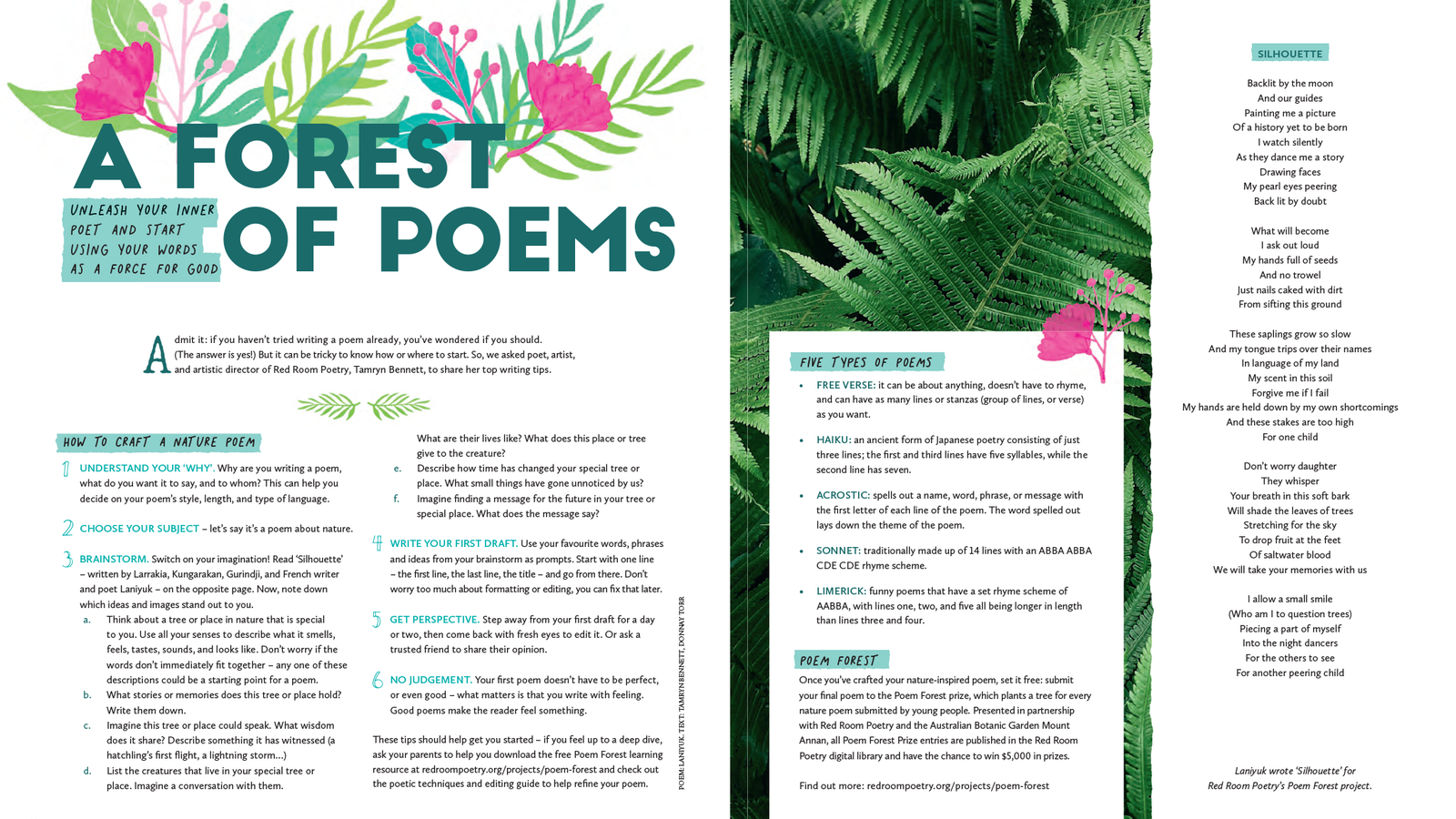How to craft a nature poem
Poem Forest
End of slideshow carousel
Admit it: if you haven’t tried writing a poem already, you’ve wondered if you should. (The answer is yes!) But it can be tricky to know how or where to start.
Poet, artist, and Artistic Director of Red Room Poetry, Tamryn Bennet, shared her top writing tips with Teen Breathe Magazine, using Larrakia, Kungarakan, Gurindji, and French writer and poet Laniyuk's commissioned poem 'Silhouette' as a departure point.
- Understand your ‘why’. Why are you writing a poem, what do you want it to say, and to whom? This can help you decide on your poem’s style, length, and type of language.
- Choose your subject – let’s say it’s a poem about nature.
- Brainstorm. Switch on your imagination! Read ‘Silhouette’ to get started. Note down which ideas and images stand out to you.
- Think about a tree or place in nature that is special to you. Use all your senses to describe what it smells, feels, tastes, sounds, and looks like. Don’t worry if the words don’t immediately fit together – any one of these descriptions could be a starting point for a poem.
- What stories or memories do this tree or place hold? Write them down.
- Imagine this tree or place could speak. What wisdom does it share? Describe something it has witnessed (a hatchling’s first flight, a lightning storm…)
- List the creatures that live in your special tree or place. Imagine a conversation with them. What are their lives like? What does this place or tree give to the creature?
- Describe how time has changed your special tree or place. What small things have gone unnoticed by us?
- Imagine finding a message for the future in your tree or special place. What does the message say?
- Write your first draft. Use your favourite words, phrases and ideas from your brainstorm as prompts. Start with one line – the first line, the last line, the title – and go from there. Don’t worry too much about formatting or editing, you can fix that later.
- Get perspective. Step away from your first draft for a day or two, then come back with fresh eyes to edit it. Or ask a trusted friend to share their opinion.
- No judgement. Your first poem doesn’t have to be perfect, or even good – what matters is that you write with feeling. Good poems make the reader feel something.
These tips should get you started on the poetry road – if you feel up to a deep dive, ask your parents to help you download the free Poem Forest learning resource here and check out the poetic techniques and editing guide to help refine your poem.


